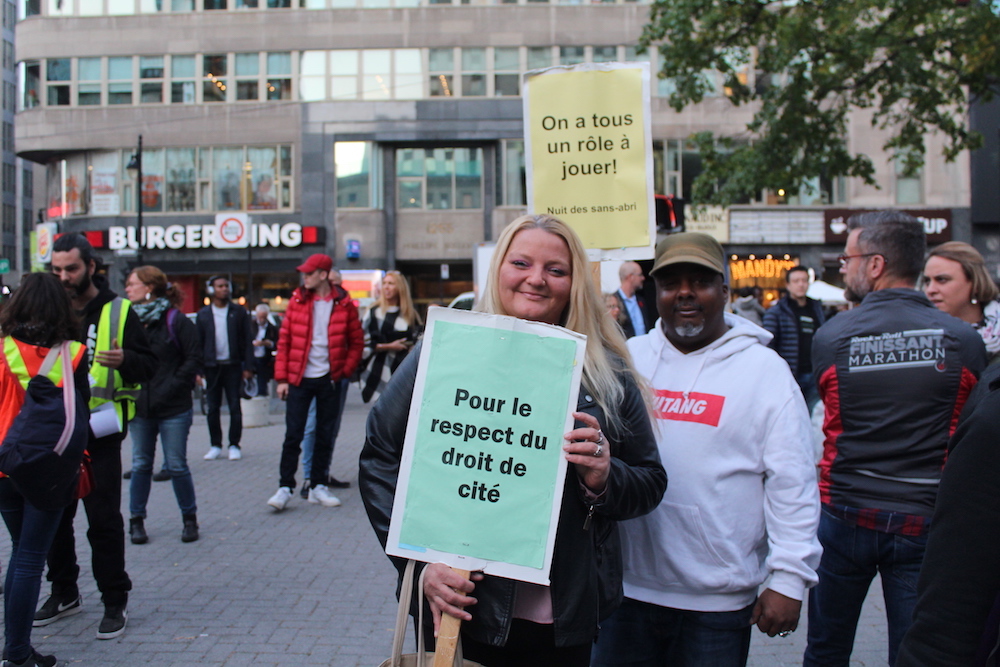Annual event urges Montreal politicians to raise awareness about homelessness in the city
It was chilly on Oct. 20, but nothing like the cold Montreal’s homeless population faces every winter. This year, hundreds of Montrealers chanted and marched in solidarity with those who inhabit our city streets in the 28th edition of La Nuit des Sans-Abri.
With the approach of Montreal’s municipal elections, Pierre Gaudreau, a spokesperson for La Nuit des Sans-Abri and director of Réseau d’aide aux personnes seules et itinérantes de Montréal (RAPSIM), said the organization will be pressuring politicians in the coming days to address issues of homelessness in their platforms and policies.
According to Gaudreau, the group’s advocacy doesn’t stop there. “We are asking the federal government to invest money to support all of the actions that are needed to help homeless people and to prevent homelessness,” he said.
The purpose of La Nuit des Sans-Abri is to raise public awareness about homelessness in Montreal, Gaudreau said.
The event began in Phillips Square at 6 p.m. The crowd walked towards Cabot Square following a brief opening speech from Bernard St-Jacques, the host of the event and director of Clinique Droits Devant, a non-profit organization that works with homeless people.
Gaudreau said one thing Montrealers can do to help the cause is support initiatives, like La Nuit des Sans-Abri, that seek to inform politicians running in the upcoming election about issues related to homelessness.
During the march, Montreal Mayor Denis Coderre said, when he first ran for mayor, the welfare of homeless people was not a prominent topic. “I decided that [the homeless situation in Montreal] was the priority because it’s a matter of making sure that everybody is a first-class citizen,” he said.
Coderre said he and his team are focusing on creating an action plan that protects the lives of homeless people in Montreal. “We’ve also been focusing to get all the power in housing. So now, with the new status of metropolis, we have that capacity to create all the housing and respect the diversity,” he said. “There is a lot to be done still, but we set up a good four years to improve the situation.”
According to Gaudreau, the biggest misconception the public has about the homeless is that they chose to be in that situation. “That is just not the case,” he said, adding that Indigenous homeless individuals are becoming more prevalent due to poor domestic situations. “We are seeing more Native people [on the streets] who lived violent situations coming from a poor neighborhood.” According to Gaudreau, Indigenous people make up 10 per cent of Montreal’s homeless population. “So it’s a big number because they do not represent that much of the population in Montreal, so they are overrepresented on the streets,” he said.
Some of the city’s current dilemmas around homelessness include a lack of social housing, social profiling of homeless people and the need for help in day centres, Gaudreau told The Concordian. “One of the major achievements that we hope to have in the next four years is to do more housing for the people who do not have any home,” Gaudreau said. “The houses will be situated everywhere in Montreal. We need some downtown and some also in Montreal North.”
Photo by Alex Hutchins
